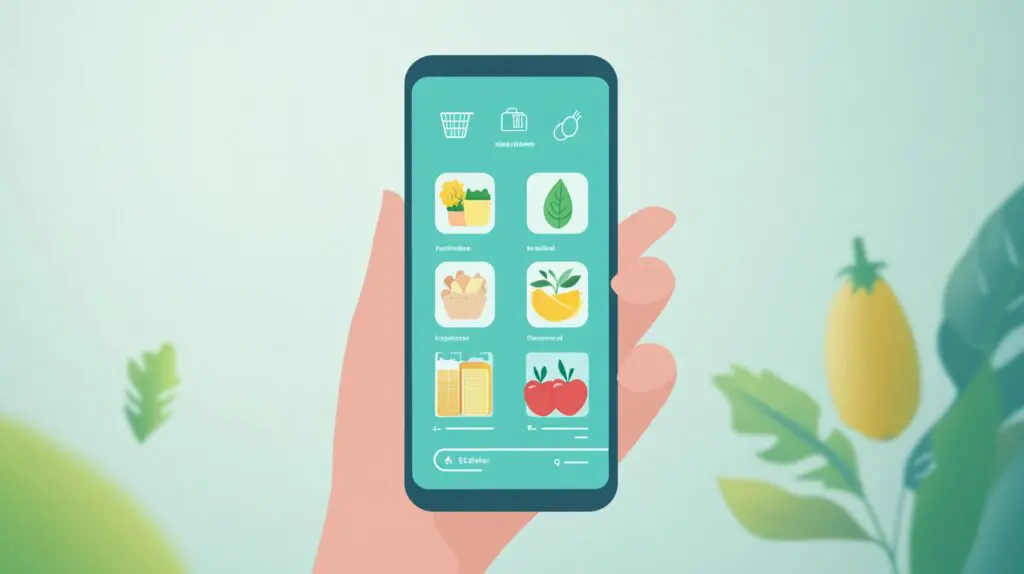You know how it is – first dates often mean grabbing a drink or a bite, right? And if things click, maybe you end up cooking together down the line. Even just chatting about favorite restaurants is standard stuff. So, when you’ve got specific dietary needs – like a serious allergy, Celiac, being vegan, whatever – you inevitably start wondering: should I put this on my profile? Is it TMI? Does it sound demanding or like a total drag? How do you even say it without it being weird?
It’s a balancing act, right? You want potential connections to know practical things that affect hanging out, but you also don’t want your entire profile to revolve around what you can’t eat. The good news is, there are plenty of low-key, positive ways to share this info if you choose to. It’s all about finding what feels comfortable and authentic to you. Here are 14 Tactful Ways Women Mention Dietary Needs/Allergies on Profiles, focusing on keeping it smooth and positive.
Weaving it into Your Bio Naturally
Your bio is your main stage – here’s how to subtly add dietary info without making it the whole show.
- The Positive Spin: Flip it! Instead of what you avoid, talk about what you genuinely get excited about eating. Something like, “Love exploring the city’s best plant-based restaurants,” or “Seriously motivated by the hunt for amazing gluten-free bakeries.” It just comes across as enthusiastic about food, not restricted by it.
- The Casual Mention: You could try weaving it into talk about your other interests. Like, “When I’m not hiking, you can usually find me experimenting with new vegan recipes,” or mentioning you’re a “Big fan of craft cider (thank goodness it’s gluten-free!).” It just sounds like part of the picture, not a special announcement.
- Linking it to Values (If Applicable): If your diet is tied to ethical or environmental reasons (like veganism), you can mention it briefly in that context. “Passionate about sustainable living and plant-based eating” connects it to a bigger part of your identity.
- The Lighthearted Joke (Use Your Judgment!): If humor is your style, a light joke might work. Something like, “Will work for incredible dairy-free cheese recommendations,” or “My superpower is sniffing out hidden gluten.” Tread carefully here – keep it genuinely light, not complaining or self-pitying.
Leveraging Profile Prompts
Those built-in prompts can be perfect opportunities for a tactful mention.
- Answering Food-Related Prompts Honestly but Breezily: Prompt: “My favorite food is…” Answer: “Anything from that amazing vegan Thai place downtown!” Prompt: “I could eat… every day.” Answer: “Honestly, a really good gluten-free pizza.” Keep it simple and positive.
- Using Non-Food Prompts Creatively: Sometimes you can slip it in unexpectedly. Prompt: “My simple pleasures…” Answer: “A good cup of coffee and finding a restaurant menu where I can actually eat more than one thing!” It adds a touch of relatable reality.
- Highlighting Related Interests: Use prompts about hobbies to mention activities related to your diet. “What I’m currently learning: how to perfect gluten-free sourdough,” or “Weekends are for: visiting farmer’s markets for fresh vegan goodies.”
Letting Photos Do Some Talking
Pictures can be sneaky good at dropping hints without you saying a word.
- Featuring Photos at Known Spots: A happy pic of you at a place known for being vegan, super allergy-aware, or having great GF options can be a quiet nod to people who are also looking for those kinds of places.
- Showing Off Your Own (Safe) Cooking/Baking: If you like making food that works for you, why not share a photo? A killer shot of “My famous vegan lasagna!” or some amazing allergy-friendly cookies shows off your skills and subtly lets people know how you eat.
- Subtle Clues (This one’s trickier): Sometimes, if you look closely, a photo might just happen to show a specific brand of GF beer you like, or the carton from that dairy-free ice cream you love. It’s low-key, maybe not even on purpose, but someone paying attention might pick up on it.

Framing it for Connection
You can position your dietary needs as a way to connect or share experiences.
- As a Shared Interest Search: Casually putting out feelers like, “Any recommendations for awesome vegetarian spots nearby?” or “Fellow Celiacs, where’s the best GF bread in town?” invites connection over a shared experience.
- Making it an Adventure: You could treat your dietary needs like a fun quest. Think: “Love the adventure of finding hidden gem restaurants that can handle food allergies like a boss!” or “My quest for the ultimate vegan donut continues…” It gives off a fun, positive vibe instead of a problem-focused one.
- Brief & Matter-of-Fact Statement: Hey, maybe you’re just a straightforward person. If that feels right, a simple, neutral heads-up in your bio is totally fine. “Heads up: I have a peanut allergy,” or “FYI, I’m vegan.” No fuss, just info.
- Saving it for Conversation (It’s an Option!): Honestly? You don’t have to mention it on your profile at all. You can absolutely wait until you’re actually chatting with someone and making plans. A simple, “Hey, when we’re picking a place, just need to make sure they have some good gluten-free options!” before a first date is perfectly reasonable.
Finding Your Comfort Zone for “Women Mention Dietary Needs/Allergies on Profiles”
Really, it just boils down to what feels comfortable and true to you.
Look, the idea isn’t to make this some huge announcement, but just to give people the info they might need, in a way that feels easy and positive. What you eat (or don’t eat) is part of your life, sure, but it’s not the whole story. Mentioning it tactfully, if you decide to, just smooths the way for later and shows you handle it with confidence. And that confidence? That’s always attractive.
Frequently Asked Questions
When is it best to mention my dietary needs during the dating process?
You can choose to mention your dietary needs casually in your profile if you feel comfortable, or wait until conversations with potential matches to share this info, especially when planning where to meet or dine.
How can photos help communicate my dietary needs?
Featuring photos at allergy-friendly or vegan spots, showcasing your own safe cooking creations, or including subtle clues in your pictures can visually hint at your dietary requirements without explicit statements.
Can I use profile prompts to share my dietary needs?
Yes, you can answer food-related prompts like your favorite cuisine or daily diet preferences in a breezy, positive way, which provides useful information while keeping your profile engaging.
What are some tactful ways to include dietary restrictions in my profile?
Use casual mentions within your interests or hobbies, such as talking about exploring vegan restaurants or baking gluten-free treats, to subtly indicate your dietary needs without making it the focus.
How should I mention my dietary needs on my dating profile without sounding demanding?
You can mention your dietary needs positively by highlighting foods you love or your passion for discovering new cuisine, integrating it naturally into your profile to keep the tone upbeat and genuine.




